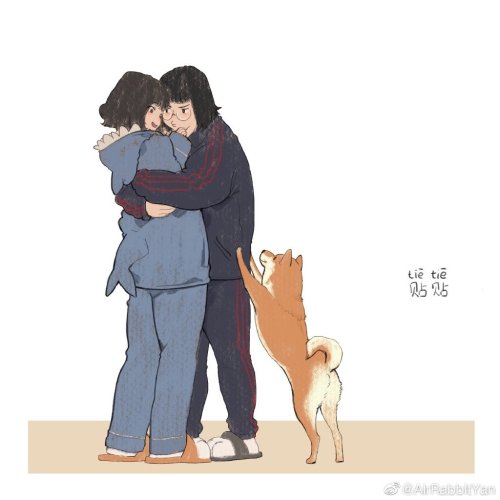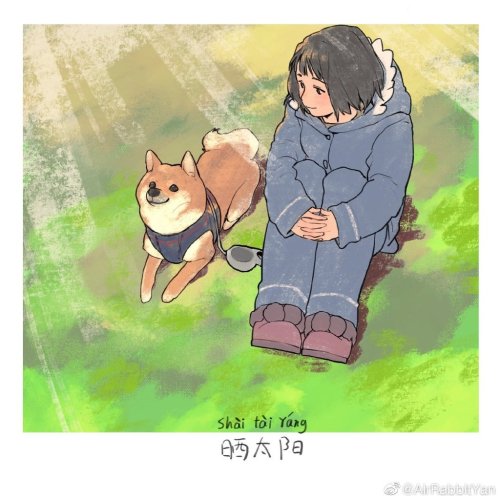This Post Is Meant To Be A Directory Of Every Resource I Come Across For Mandarin, Often Referred To

this post is meant to be a directory of every resource I come across for Mandarin, often referred to as Chinese or Standard Chinese. It will be a continuous work in progress so thank you for your patience! if you have any issues or things to add, please reply to this post!
info
history of the chinese writing system
“in mandarin chinese, we don’t say…”
language learning profile
playlist of samples
the languages gulper
wikipedia
Keep reading
More Posts from Lia-kotik-blog and Others
Crafting a language self-learning curriculum (sort of)
In my experience textbooks aren’t really the best way to learn after you’ve passed a certain level. They’re incredibly useful for beginners to learn grammar and vocab but after that they don’t offer a lot of activities that help you implement your learning in a way that reflects how you will actually use it.
It’s also near impossible to learn a language without help. Don’t isolate yourself just because you are self-learning rather than taking lessons. You NEED to talk to native speakers, both through text messages and actual verbal conversations. Colloquial conversations will differ greatly to formal an ‘correct’ ones spoken in a classroom.
1. The first step I suggest when creating a curriculum is to know what your goal is. Are you planning to move to the country the language is spoken in? Do you want to study as a way to better understand and appreciate the culture?
2. The next would be to gauge what level you are at through taking a language competency test. This is mostly so you have an idea of what you do know and what is considered the universal “next step” to give yourself a general direction to head towards.
3. Write down topics that interest you. For me these would be my career (marketing and digital media), my interests (video games, ttrpgs, fashion, history, horror novels), and important parts of my identity (my religion, my sexuality, my partner, my disability) etc. I didn’t bother writing down anything I already know such as how to talk about my family, how to talk about my country of birth, or hobbies commonly written in textbooks such as reading, swimming, camping.
4. Now come up with a list of general activities to cover your listening, writing, reading and speaking skills. Some examples are listed below:
Listening:
Watch 5 minutes of the news - recaps or weekly rundowns are great for this
Listen to an audio book for half an hour whilst cooking, cleaning, commuting etc.
Create playlists of music you actually like in your target language - you can further this by watching interviews about the artists or watching any live performances/streams they have done.
Writing:
Write 1-2 paragraphs about a chosen topic without any dictionary or vocab list aid, any words you cannot remember or do not know just write in your native language. Return with a dictionary to fill in these missing words after and ask a native speaker to make any corrections they can spot and finally rewrite everything with all the corrections (taken from Lindie Botes).
Write practice professional emails, blog-posts, product reviews, leave comments under Instagram posts etc. Make sure to learn how to write in different situations: how does writing an email to your boss differ from writing to your colleague? How are businesses addressed on review sites? What changes when writing a blog for fashion from one about politics? Learn these nuances.
Text your native speaker friends - simple but necessary
Reading:
Read and summarise a key news article from this week
Read a page from a book in your target language, highlight any unknown words to return to. Write out the sentences these words occurred in then the words on their own with their definition and create a new sentence using them. My key tip for this is not to be too ambitious with what you are reading. Don’t try to read an epic fantasy, instead focus on short stories and books for children aged around 5-10. As you improve you can read more complicated plots but just because you are familiar with the book in your native language does not mean you will understand what is going on.
Speaking
Record yourself leaving fake voice mails. This can be for a doctor’s appointment, inquiring about a job, asking to hangout with a friend etc. Keep it short and tone appropriate. This also gives you the opportunity to research phone etiquette in that culture.
Talk. To. Native. Speakers.
5. Combine your topics of interest with activities to give you something that should resemble almost a lesson plan.
Example:

Reading rec list for chinese learners. This is not exhaustive, if you find stuff that works for you then go for it! This is also not perfect, you may find stuff a bit easier or harder is more ideal for you. (By "know" below I mean you recognize the word as familiar, have studied or looked it up at some point, and so if you need to look it up again in reading you will learn it longer term fairly easily because of the repeated exposure to it in reading).
Know ~500 words?
Mandarin Companion Graded Readers. I recommend the Sherlock one, and the Journey to the Center of the Earth one. All Mandarin Companion books are excellent for beginners though.
Pleco Graded Readers - I recommend The Butterfly Lovers. There are a lot of Pleco Graded readers though, so you can pick based on amount of unique words (some Graded readers on Pleco go up to 2000 unique words).
Know ~1000-1500 words?
Sinolingua Chinese Graded Readers. There are several, and I started with the 500 word one. They somewhat match up with HSK and I found them more challenging than the Mandarin Companion graded readers. They have a vocabulary list in the back of the book and footnotes to help you study. They are a good bridge to get you from graded readers to other materials. I found the 1000 and 2000 word book equally difficult.
Pleco Graded readers, which include readers from 1000-2000 unique words.
Start delving into manhua! If you're ready and feel like it! Easier manhua will be slice of life setting ones, and ones based on something you're already familiar with. So if you've watched the Untamed or read 魔道祖师, then the manhua will be easier for you. If you've watched The Lost Tomb Reboot, then try out the slice of life comedy manhua spin off 盗墓笔记重启日常向 https://m.ac.qq.com/comic/index/id/649452. My Story 他们的故事 is a gl manhua which is slice of life and easy to read, as is 19天. There's also more genre specific manhua which I waited a bit to read, but if you're familiar with the story they may be doable like 2ha's manhua and 破云 manhua.
Know ~1500-2000 words?
Start getting into easier novels. Suggestions include 活着 (anything by this author is often recommended to learners, I have not actually read anything by him yet), 小王子 (this was my first not-graded-reader novel I finished reading in chinese, it was a bit challenging, I used a english/Chinese copy so I could look up words occasionally), 笑猫日记: 会唱歌的猫 (I highly recommend this series of books, they're for kids and fairly straightforward, set in a city so decently useful words are used, with a lot of chengyu that's commonly used so they're worth learning, I read 2 of these novels), 他们的故事 by 一根黄瓜丝儿 (a bl novel that's first person, generally uses a lot of common daily life words, and is fairly straightforward, I've read half and it was the first real novel I tried to read in chinese). These novels can be tried earlier on if you're more willing to use a click dictionary, which is what I did (except for 小王子 since I had a print copy). 论如何错误地套路一个魔教教主 The Wrong Way to a Demon Sect Leader (a fairly easy wuxia bl read).
Also in general anything you've read before in a language you understand, is going to be easier to read in chinese than something brand new.
Feeling brave? Up for a challenge?
撒野 and anything by that author uses a lot of more everyday language and is an easier read than some other webnovels. 盗墓笔记 does not use particularly hard language outside of the tomb genre words which if you're reading then you need to look up and learn anyway eventually (the slang in it is a bit hard but also worth learning so the cursing etc trips you up less later in other stuff you read), if you've seen the show before its doable to read. Scum Villain Self Saving System is on the easier end of mxtx novels to read, especially if youre already familiar with the plot.
Know ~2000 words?
The same novels as before apply. But now you may need a dictionary a bit less. Stuff like 撒野 will now be a bit less difficult, still challenging. Now other novels will start to be doable as desired, if you're using a dictionary. So go have fun looking into whatever webnovels you're interested in.
(I made a list of difficulty ratings of various webnovels in my rec list tag, you may want to check out that list. A quick gadget though is like... 撒野 author is easier than 盗墓笔记 author, then mxtx, then priest (and tian ya ke and zhenhun are easier than silent reading and sha po lang), and poyun was higher on the difficulty scale, 2ha was fairly hard. Basically the more vocabulary or thicker the paragraphs, the harder it's gonna be. Or the less familiar you are with a given genre).
At ~2000 words or more I'd say reading with a click dictionary feels quite doable, although a slog if you pick a harder novel so gauge what feels an okay level for you personally to read. And if you feel like reading without a dictionary, you'll have to explore a bit to see what's comprehensible to you without one.





上海外灘 Shanghai bund
Reviewing tones as an intermediate in Chinese
As a beginner it takes a bit of time to become accustomed to be able to hear the difference in tones, yet alone pronounce them very correctly. By the time you get to intermediate you probably can hear the difference in tones but you may still have trouble pronouncing every single word correctly. However you most likely have a number of words that you have heard so often that you do pronounce correctly. For example 中国 zhong1 guo2, I bet most intermediates pronounce this is the correct tone as it is a word occurring so often that our brains automatically imitate pronunciations. However, when we encounter a new word we may have difficulty getting the tone just right, and then you need to remember it too.
I have two bits of advice that may help with this, that I myself am using to improve my tones over time:
As soon as you learn a new word, repeat at least 10 times in the correct tone.
As I said when speaking Chinese, you are speaking at a speed that you don’t have time to remember which tone the word is, you say it how you remember it. So when you learn a new word you want to try to cement the correct ‘rhythm’ (or tone) of the word in your head. If you remember the incorrect one it may be difficult to undo this. (i remember I pronounced 文化 as wen2 hua2 for the longest time and it was difficult to change this to wen2 hua4 in my head when i discovered i had been saying it all wrong!)
Memorise a few ‘tone pairs’ to remember the ‘rhythm’ when you learn a new word.
Hacking Chinese ( https://www.hackingchinese.com/focusing-on-tone-pairs-to-improve-your-mandarin-pronunciation/ ) has a great article on tone pairs and it’s merits. Recently when i learn a new word I recall the 'model’ word that I have for that particular tone pair, say it a few times to remember the 'rhythm’ of the word, the n say the new word I want to learn in that same rhythm, therefore it will help saying the word in the correct tone.
For example, lets say I learnt the new word 生活 sheng1 huo2, this has the same tone pair as 中国, therefore when i learn 生活 i can easily recall how 中国 is pronounced and imitate the same rythym when i said 生活. I created a table for myself with the tone pairs and so each time I encounter, for example any word that is first tone-second tone (such as 中国), then i can recall the rythym easily in my head.

This table has a list of words that I subconsciously pronounce with the correct tones as a result of hearing them so many times, there are however too many words that i don’t pronounce in the correct tone, hence i use this method to help :P
(ignore my terrible handwriting!)
Please try this out and let me know if you try this out and how it works for you??
Pronunciation Advice for Language Learners: How to Figure Out What You're Doing Wrong
The other day, my friend @calystarose was struggling with the phrase 出去吃 chūqùchī (go out to eat). This is a tongue twister for a lot of native English speakers. Even if we manage to get the individual vowels and consonant sounds correct, we often have a hard time stringing the words together.
I thought about the problem for a bit and then I told her to try saying it with her teeth clenched:
Why would that help?
Clenching your teeth forces you to hold your jaw still, and limits the amount of space your tongue has to move around. You can still make roughly the same sounds you were making before, but the new limitation forces you to make those sounds with smaller muscle movements.
Smaller movements reduce the amount of time and effort it takes to get from one syllable to the next.
.
Talking fast is more about efficiency than speed.
.

ɪᴘᴀ ᴋᴇʏʙᴏᴀʀᴅ ʀᴇꜰᴇʀᴇɴᴄᴇ ᴄʜᴀʀᴛ ᴍsᴋʟᴄ_ɪᴘᴀɢʀᴀᴘʜɪᴄ.ᴘᴅꜰ [sᴏᴜʀᴄᴇ]
When I first started taking French lessons, I had an easy time pronouncing words like "grand" and "robe." But then I ran into the word "livre," and suddenly I was getting tongue tied.
I realized my r was too far back in my throat. Too guttural.
This worked for a word like "grand" where the r is next to a g, a gutteral consonant. A consonant like v, on the other hand, is right at the front of the mouth, on the teeth.
If I wanted to say "livre" smoothly, I'd have to push my r further forward in my mouth, closer to that letter.
.
There's almost always more than one way to make your mouth form a particular vowel or consonant sound.
.
I noticed a while back that I say these letters t & d differently depending on whether I'm trying to speak English or Mandarin.
My t's and d's are little firmer in Mandarin than they are in English — my tongue is held stiffer, and the tip is more pointed when it comes into contact with my hard palate.
The funny thing is, I can't really hear a difference.
But I can feel the difference in my mouth when I shape the letters.
I never made a conscious decision to change how I say these consonants when speaking Mandarin — this is just something I naturally started doing when mimicking the recorded dialogue in my Duolingo audio lessons.
I realized it wasn't about getting the consonants to sound correct.
It was about what came after those consonants. The vowel sounds:
Chinese vowels are really different from English vowels. By changing how I shaped these consonants, I was setting up my mouth for a smoother transition into the next vowel sound.
.
Proper enunciation isn't just about making the right sounds come out of your mouth. It's also about transitioning from one sound to the next as fluidly as possible.
reading web novels/articles for traditional chinese mandarin language learners
if you’re like me and want to eventually make reading your primary way of learning chinese characters, you’ll notice that a lot of the resources online are using simplified characters. new tong wen tang (chrome; firefox) is a browser extension that will help you convert webpages between simplified and traditional chinese. and regardless of the writing system, another helpful extension to have is zhongwen (chrome; firefox), which adds the ability to hover over a chinese character and see a pop-up containing the pinyin and english translation of a word.
before enabling the two extensions (notice how everything is in simplified!):

after enabling new tong wen tang and zhongwen (text has been converted to traditional chinese and doesn’t interfere with zhongwen’s pop-up dictionary):







Whisper of the Heart 耳をすませば 1995 | dir. Yoshifumi Kondō











©AirRabbitYan

I read entire books as part of my Chinese study routine + this often provokes shock or surprise from other learners, so here I outline how I got to this point and why + how you can do it too but with less pain! Also down to field questions lol I love talking about language learning
A man in Inner Mongolia, China, comparing the sizes of goats at different ages.
English added by me :)
-
 munlihts liked this · 7 months ago
munlihts liked this · 7 months ago -
 mp-47 liked this · 1 year ago
mp-47 liked this · 1 year ago -
 levi-who-is-called-biff reblogged this · 1 year ago
levi-who-is-called-biff reblogged this · 1 year ago -
 aprilcarstairs liked this · 1 year ago
aprilcarstairs liked this · 1 year ago -
 hydroslimeinspace liked this · 1 year ago
hydroslimeinspace liked this · 1 year ago -
 resourcesforforgetfulbitches reblogged this · 1 year ago
resourcesforforgetfulbitches reblogged this · 1 year ago -
 goofyguaver reblogged this · 1 year ago
goofyguaver reblogged this · 1 year ago -
 f-sal reblogged this · 1 year ago
f-sal reblogged this · 1 year ago -
 f-sal liked this · 1 year ago
f-sal liked this · 1 year ago -
 nefarious-virgo liked this · 1 year ago
nefarious-virgo liked this · 1 year ago -
 leedie-reblogs reblogged this · 1 year ago
leedie-reblogs reblogged this · 1 year ago -
 blacktoneddsandd liked this · 1 year ago
blacktoneddsandd liked this · 1 year ago -
 tarantasina liked this · 1 year ago
tarantasina liked this · 1 year ago -
 diatarcmaropho liked this · 1 year ago
diatarcmaropho liked this · 1 year ago -
 arkstrick reblogged this · 1 year ago
arkstrick reblogged this · 1 year ago -
 mmanyhandss liked this · 1 year ago
mmanyhandss liked this · 1 year ago -
 timaios-kun liked this · 1 year ago
timaios-kun liked this · 1 year ago -
 luciusskywolter liked this · 1 year ago
luciusskywolter liked this · 1 year ago -
 maythepain liked this · 1 year ago
maythepain liked this · 1 year ago -
 popofish liked this · 2 years ago
popofish liked this · 2 years ago -
 nyctopya liked this · 2 years ago
nyctopya liked this · 2 years ago -
 labella-ventisca liked this · 2 years ago
labella-ventisca liked this · 2 years ago -
 i-will-learn-another-language reblogged this · 2 years ago
i-will-learn-another-language reblogged this · 2 years ago -
 thejoyoflearninglanguages reblogged this · 2 years ago
thejoyoflearninglanguages reblogged this · 2 years ago -
 thejoyoflearninglanguages liked this · 2 years ago
thejoyoflearninglanguages liked this · 2 years ago -
 miapodoeszizy liked this · 2 years ago
miapodoeszizy liked this · 2 years ago -
 flamesong liked this · 2 years ago
flamesong liked this · 2 years ago -
 homosexualomelette liked this · 2 years ago
homosexualomelette liked this · 2 years ago -
 moonsetlangblr reblogged this · 2 years ago
moonsetlangblr reblogged this · 2 years ago -
 mandarinfordepressed reblogged this · 2 years ago
mandarinfordepressed reblogged this · 2 years ago -
 moodymercutio liked this · 2 years ago
moodymercutio liked this · 2 years ago -
 mandlien reblogged this · 2 years ago
mandlien reblogged this · 2 years ago -
 mandlien liked this · 2 years ago
mandlien liked this · 2 years ago -
 slowerdazed liked this · 2 years ago
slowerdazed liked this · 2 years ago -
 yu-dreams reblogged this · 2 years ago
yu-dreams reblogged this · 2 years ago -
 sourjellies liked this · 2 years ago
sourjellies liked this · 2 years ago -
 bloodravensarecommies reblogged this · 2 years ago
bloodravensarecommies reblogged this · 2 years ago -
 bloodravensarecommies liked this · 2 years ago
bloodravensarecommies liked this · 2 years ago -
 bloodravensarecommies reblogged this · 2 years ago
bloodravensarecommies reblogged this · 2 years ago -
 est-ce-que reblogged this · 2 years ago
est-ce-que reblogged this · 2 years ago -
 est-ce-que liked this · 2 years ago
est-ce-que liked this · 2 years ago